Cybersecurity Essentials: Why Online Businesses Can’t Afford to Ignore Data Protection
In today’s digital landscape, cybersecurity is no longer a luxury but a necessity for online businesses striving for success and longevity. As cyber threats become increasingly sophisticated, the importance of robust data protection measures cannot be overstated. Business owners and IT managers must prioritize threat mitigation strategies to shield sensitive information from breaches that could jeopardize their reputation and financial health. This article delves into essential cybersecurity practices, offering insights to empower businesses with the tools needed to navigate the complexities of digital security. By understanding the critical role of data protection, organizations can confidently embrace digital transformation and secure their future in an ever-evolving online marketplace.
Understanding Cybersecurity Basics

In this section, we’ll explore the fundamental concepts of cybersecurity and why they are crucial for online businesses. We’ll delve into the key components of data protection and explain various threat mitigation strategies.
Importance of Cybersecurity for Online Business
Cybersecurity is the backbone of any successful online business. It protects valuable assets, customer data, and the company’s reputation from digital threats.
In today’s interconnected world, cyber attacks are becoming more sophisticated and frequent. Online businesses are prime targets due to the wealth of sensitive information they handle.
Implementing robust cybersecurity measures not only safeguards against potential financial losses but also builds trust with customers. It demonstrates a commitment to protecting their personal information, which is crucial for long-term success in the digital marketplace.
Key Components of Data Protection
Data protection encompasses various elements that work together to secure sensitive information. The primary components include:
- Encryption: Transforming data into unreadable code to prevent unauthorized access.
- Access Control: Limiting who can view or modify data based on user roles and permissions.
- Data Backup: Regularly creating copies of data to ensure recovery in case of loss or corruption.
Network security is another crucial aspect, involving firewalls, intrusion detection systems, and virtual private networks (VPNs).
Elevated-Marketing emphasizes the importance of a comprehensive approach to data protection, integrating these components into a cohesive strategy tailored to each business’s unique needs.
Threat Mitigation Strategies Explained
Threat mitigation strategies are proactive measures designed to reduce the risk and impact of cyber attacks. These strategies typically involve a multi-layered approach:
Risk Assessment: Identifying potential vulnerabilities in the system and prioritizing them based on their potential impact.
Security Policies: Establishing clear guidelines for employees regarding data handling, password management, and acceptable use of company resources.
Continuous Monitoring: Implementing tools and processes to detect and respond to security incidents in real-time.
Regular security audits and penetration testing help identify weaknesses before they can be exploited by malicious actors. Elevated-Marketing’s cybersecurity experts can assist in developing and implementing these strategies effectively.
Common Cybersecurity Threats
Understanding the landscape of cybersecurity threats is essential for any online business. This section will explore some of the most prevalent dangers and how to protect against them.
Recognizing Phishing Attacks
Phishing attacks are deceptive attempts to obtain sensitive information by posing as a trustworthy entity. These attacks often come in the form of emails, text messages, or fake websites.
Key characteristics of phishing attempts:
- Urgent or threatening language
- Requests for personal information
- Suspicious links or attachments
- Spelling and grammatical errors
Social engineering tactics are often employed to manipulate victims into divulging confidential data. Educating employees about these tactics is crucial for prevention.
Elevated-Marketing’s security awareness training can help businesses recognize and thwart phishing attempts effectively.
Identifying Malware Vulnerabilities
Malware, short for malicious software, encompasses various types of harmful programs designed to infiltrate and damage computer systems. Common types include:
| Malware Type | Description |
|---|---|
| Viruses | Self-replicating programs that spread by attaching to files |
| Trojans | Disguised as legitimate software to trick users |
| Ransomware | Encrypts data and demands payment for decryption |
Vulnerabilities that malware often exploits include:
- Outdated software and operating systems
- Weak passwords
- Unpatched security flaws
Regular system updates and robust antivirus software are essential defenses against malware. Elevated-Marketing’s IT services can help businesses maintain up-to-date and secure systems.
Protecting Against Data Breaches
Data breaches can have devastating consequences for online businesses, including financial losses and damage to reputation. Protecting against them requires a multi-faceted approach:
- Encryption: Ensure all sensitive data is encrypted both at rest and in transit.
- Access Control: Implement the principle of least privilege, granting users only the access they need.
- Regular Audits: Conduct frequent security audits to identify and address vulnerabilities.
Incident response planning is crucial for minimizing the impact of a breach if one occurs. This includes having a clear protocol for containing the breach, assessing the damage, and notifying affected parties.
Elevated-Marketing’s cybersecurity experts can assist in developing comprehensive data breach protection strategies tailored to your business needs.
Implementing Effective Cybersecurity Measures
Implementing robust cybersecurity measures is crucial for safeguarding your online business. This section will explore best practices, advanced tools, and the importance of fostering a security-conscious culture within your organization.
Best Practices for Data Protection
Effective data protection requires a comprehensive approach that combines technical measures with sound policies and procedures. Here are some best practices:
Strong Authentication: Implement multi-factor authentication (MFA) for all user accounts. This adds an extra layer of security beyond passwords.
Regular Backups: Conduct frequent data backups and store them securely off-site or in the cloud. This ensures business continuity in case of data loss or ransomware attacks.
Access Control: Apply the principle of least privilege, granting users only the access they need to perform their jobs. Regularly review and update access permissions.
Elevated-Marketing’s IT services can help businesses implement these best practices effectively, ensuring robust data protection.
Utilizing Advanced Threat Mitigation Tools
Advanced threat mitigation tools are essential for staying ahead of evolving cyber threats. Some key technologies include:
- Next-Generation Firewalls: These go beyond traditional firewalls by providing application-level inspection and intrusion prevention.
- Endpoint Detection and Response (EDR): EDR tools monitor endpoints for suspicious activities and provide rapid response capabilities.
- Security Information and Event Management (SIEM): SIEM systems collect and analyze log data from various sources to detect and respond to security incidents.
Artificial Intelligence and Machine Learning are increasingly being incorporated into these tools, enhancing their ability to detect and respond to novel threats.
Elevated-Marketing’s cybersecurity services can help businesses select and implement the most appropriate advanced threat mitigation tools for their specific needs.
Building a Security-Conscious Culture
Creating a security-conscious culture is vital for maintaining robust cybersecurity. This involves making security a part of every employee’s mindset and daily practices.
Regular Training: Conduct frequent cybersecurity awareness training sessions to keep employees informed about the latest threats and best practices.
Clear Policies: Develop and communicate clear security policies and procedures. Ensure all employees understand their roles in maintaining security.
Lead by Example: Leadership should demonstrate a commitment to security by following best practices and emphasizing its importance.
Encouraging open communication about security concerns and rewarding vigilance can help reinforce a security-conscious culture. Elevated-Marketing’s team can assist in developing and implementing effective security awareness programs.
The Business Impact of Cybersecurity
Understanding the business impact of cybersecurity is crucial for making informed decisions about investment in security measures. This section explores the costs of inadequate security, the reputational benefits of strong data protection, and how cybersecurity contributes to long-term success.
Cost of Ignoring Cybersecurity Needs
Ignoring cybersecurity needs can lead to significant financial and operational costs for businesses. Here’s a breakdown of potential expenses:
Direct Costs:
- Data recovery and system repair
- Legal fees and regulatory fines
- Ransom payments (in case of ransomware attacks)
Indirect Costs:
- Loss of customer trust and business
- Damage to brand reputation
- Decreased productivity during system downtime
According to a recent study:
- The average cost of a data breach in 2021 was $4.24 million
- It took an average of 287 days to identify and contain a breach
Elevated-Marketing’s cybersecurity services can help businesses avoid these costly consequences through proactive security measures.
Enhancing Business Reputation through Data Protection
Strong data protection measures can significantly enhance a business’s reputation, leading to increased customer trust and loyalty. Here’s how:
- Demonstrated Commitment: Robust security measures show customers that you value their privacy and take data protection seriously.
- Competitive Advantage: In an era of frequent data breaches, strong security can set you apart from competitors.
- Positive Brand Association: Being known for strong security can enhance overall brand perception.
Case Study: A retail company that implemented advanced encryption and transparent data practices saw a 15% increase in customer retention and a 20% boost in new customer acquisition within a year.
Elevated-Marketing’s comprehensive approach to cybersecurity and branding can help businesses leverage security as a key differentiator.
Long-Term Success with Strong Cybersecurity
Investing in strong cybersecurity is crucial for long-term business success in the digital age. Here’s why:
Risk Mitigation: Robust security measures reduce the likelihood of costly breaches and data loss incidents.
Business Continuity: Effective cybersecurity ensures uninterrupted operations, maintaining productivity and customer service.
Regulatory Compliance: Strong security practices help businesses meet increasingly stringent data protection regulations, avoiding fines and legal issues.
By prioritizing cybersecurity, businesses can build a foundation for sustainable growth and success in an increasingly digital marketplace. Elevated-Marketing’s expertise can guide businesses in developing comprehensive, long-term cybersecurity strategies.
Future Trends in Cybersecurity
As technology evolves, so do the challenges and solutions in cybersecurity. This section explores emerging threats, innovations in data protection, and how businesses can prepare for the future of digital security.
Emerging Threats to Online Businesses
The cybersecurity landscape is constantly changing, with new threats emerging regularly. Some key trends to watch:
AI-Powered Attacks: Cybercriminals are increasingly using artificial intelligence to create more sophisticated and targeted attacks.
IoT Vulnerabilities: The proliferation of Internet of Things (IoT) devices is creating new attack surfaces for hackers to exploit.
Quantum Computing Threats: As quantum computing advances, it poses potential risks to current encryption methods.
“The threat landscape is evolving faster than ever. Businesses need to stay vigilant and adaptable to protect themselves.” – Isaac Maple, Cybersecurity Expert at Elevated-Marketing
Elevated-Marketing’s cybersecurity services stay ahead of these emerging threats, providing cutting-edge protection for online businesses.
Innovations in Data Protection Solutions
To counter evolving threats, cybersecurity solutions are becoming more advanced and sophisticated. Key innovations include:
- AI and Machine Learning: These technologies are being used to detect and respond to threats in real-time, often before human analysts can identify them.
- Zero Trust Architecture: This security model assumes no user or system is trustworthy by default, requiring verification from everyone trying to access resources in the network.
- Blockchain for Security: Blockchain technology is being explored for its potential to enhance data integrity and access control.
Cloud-Native Security solutions are also gaining traction, providing scalable and flexible protection for businesses leveraging cloud services.
Elevated-Marketing’s IT services incorporate these innovative solutions to provide state-of-the-art protection for online businesses.
Preparing Your Business for the Future
To stay secure in the face of evolving cyber threats, businesses need to adopt a proactive and forward-thinking approach to cybersecurity. Here are some key steps:
Continuous Learning: Stay informed about emerging threats and new security technologies. Regular training for IT staff and employees is crucial.
Flexible Infrastructure: Develop an adaptable IT infrastructure that can quickly incorporate new security measures as they become available.
Strategic Partnerships: Collaborate with cybersecurity experts who can provide ongoing guidance and support. Elevated-Marketing’s team offers the expertise needed to navigate the complex future of cybersecurity.
By staying ahead of trends and investing in robust, adaptable security measures, businesses can position themselves for long-term success in an increasingly digital world.
